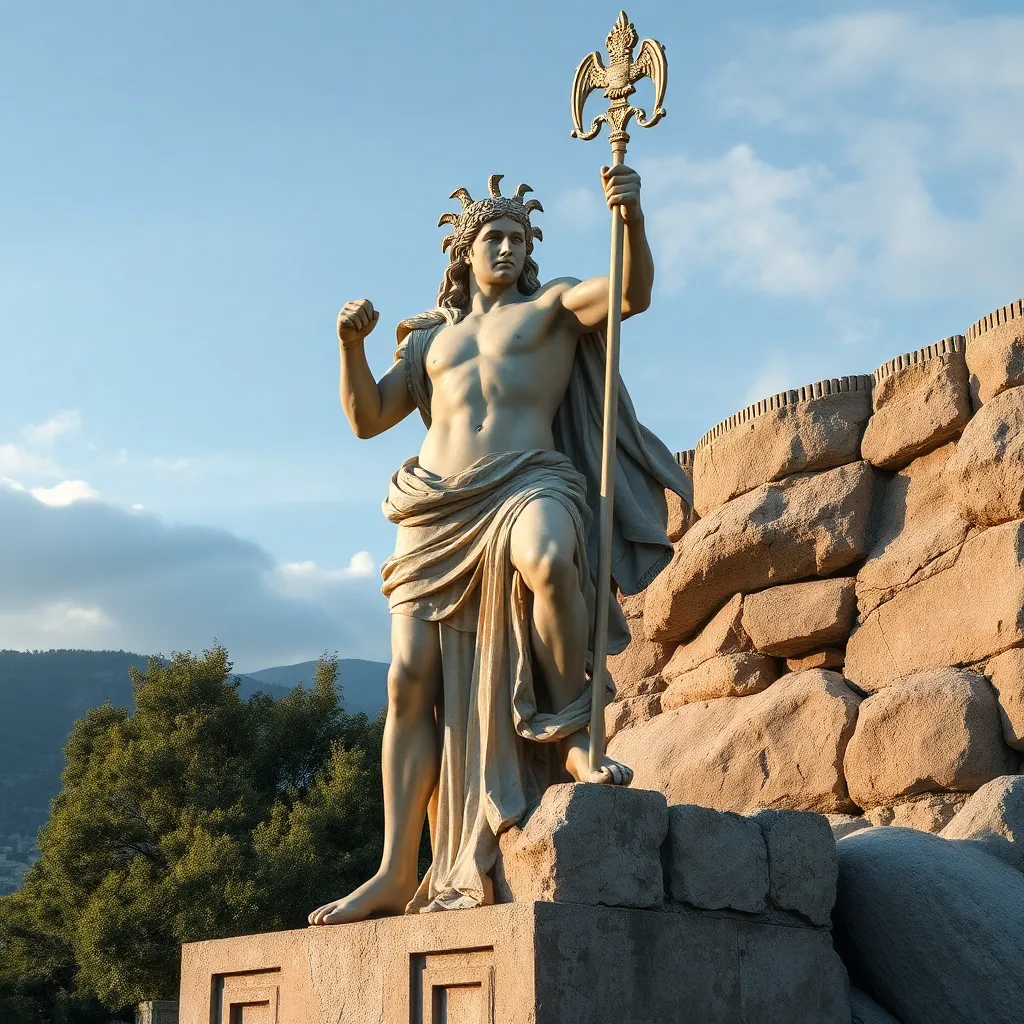The Importance of Perseus in Ancient Greek Education
I. Introduction
Ancient Greek education was a fundamental aspect of society, serving not only to impart knowledge but also to instill moral values and civic responsibility. Central to this educational framework were the myths and legends that shaped the Greek worldview. Among these figures, Perseus stands out as a significant hero whose stories were used to teach important lessons. This article will explore the role of Perseus in the context of ancient Greek education, highlighting his contributions to moral and ethical teachings.
II. Historical Context of Education in Ancient Greece
The educational system in Ancient Greece was divided into various stages, emphasizing different goals at each level. The primary structure included:
- Early Education: Focused on music, gymnastics, and basic literacy.
- Advanced Studies: Involved philosophy, mathematics, and rhetoric, especially for wealthier citizens.
- Military Training: Emphasized for male citizens, preparing them for civic duty.
Education aimed to create well-rounded individuals who could contribute to society, and it was heavily influenced by mythology and literature. Myths served not only as entertainment but also as moral guides, providing examples of virtues and vices.
Heroes like Perseus played a crucial role in shaping the moral values of young Greeks, teaching them about bravery, honor, and the importance of cleverness in overcoming obstacles.
III. Perseus: A Brief Biography
Perseus, one of the most celebrated heroes of Greek mythology, has a rich backstory that captures the imagination. His origins trace back to:
- Parentage: Born to Danaë and Zeus, who visited her in the form of golden rain. His lineage marked him as a demi-god with divine favor.
- Early Challenges: Perseus faced many challenges from birth, being cast into the sea with his mother by his grandfather, Acrisius, who feared a prophecy.
Throughout his life, Perseus undertook several key adventures, including:
- Slaying the Gorgon Medusa and using her head as a weapon.
- Rescuing Andromeda from a sea monster.
- Defeating the tyrant Polydectes.
Perseus embodies the ideals of bravery and intelligence, making him an exemplary figure in the context of Greek education.
IV. Perseus in Greek Mythology
The myths surrounding Perseus are rich with themes that resonate in educational settings. Major stories involving Perseus include:
- The Slaying of Medusa: A tale of courage and the clever use of tools (the mirrored shield) to defeat a formidable foe.
- The Rescue of Andromeda: Demonstrating not only bravery but also the importance of honor in relationships.
Through these tales, Perseus exemplifies heroism, courage, and cleverness, providing educational lessons on:
- The significance of using intelligence to solve problems.
- The value of courage in the face of danger.
- The importance of moral integrity when interacting with others.
V. The Role of Perseus in Moral and Ethical Education
Perseus’s adventures serve as a rich source of moral teachings, making him an ideal figure in ethical education. His stories impart crucial lessons about:
- Bravery: Perseus’s willingness to confront Medusa and other threats illustrates the virtue of courage.
- Justice: His quest often involves righting wrongs and protecting the innocent, emphasizing the importance of justice.
- Overcoming Adversity: Perseus’s journey teaches that challenges can be overcome with determination and cleverness.
These virtues are essential for character-building in students, providing them with role models to emulate in their own lives.
VI. Perseus in Literature and Art
Perseus has been a prominent figure in ancient literature and art, which played a significant role in education. His representations can be found in:
- Ancient Texts: Works by authors like Ovid and Apollodorus detail his adventures, serving as educational material.
- Theatrical Plays: Dramatizations of his stories provided moral lessons through performance.
- Visual Arts: Sculptures and pottery often depict scenes from his myths, enhancing the visual culture of education.
The influence of these representations is profound, as they were often used in teaching materials to illustrate moral lessons and heroic ideals.
VII. Modern Reflections of Perseus in Education
Today, the tales of Perseus continue to be a part of educational discourse. His stories are taught in various contexts, highlighting their relevance in contemporary discussions on heroism. Key points include:
- Literature Curricula: Perseus’s myths are studied in literature classes, providing insights into ancient cultures and moral teachings.
- Heroism Discussions: His character is often referenced in discussions about what it means to be a hero today.
- Interdisciplinary Approaches: Educators incorporate mythological figures like Perseus into subjects such as history, ethics, and art.
This incorporation supports the idea that mythological figures remain relevant and influential in shaping character and values in modern education.
VIII. Conclusion
In summary, Perseus holds a significant place in the educational landscape of Ancient Greece. His stories impart crucial moral lessons, shaping the character of young citizens. The enduring legacy of Perseus continues to influence modern education, showcasing the importance of mythological figures in learning. By studying these heroes, students can draw inspiration from their virtues and apply these lessons in their own lives, ensuring that the teachings of the past remain relevant in the present and future.




